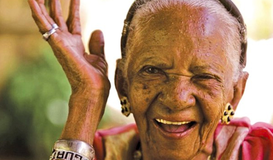
Called “Blue Zones” for the astounding average lifespans, they are defined as areas where people have three times the chance of reaching 100 than we do in the U.S.
In fact, the island inhabitants of Okinawa in Japan, the Titicaca Indians in mountainous Peru, the Abkhasia in the Caucasus Mountains in Southern Russia and other areas, super centenarians are common (those who live to 110 years or more) and there are plenty of documented cases of people living to 120 or even 140!
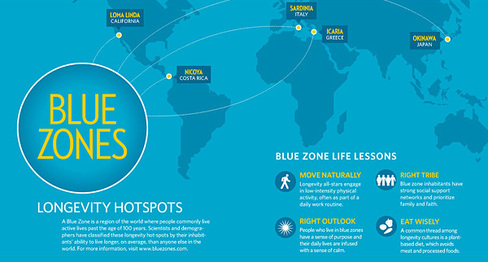
In this blog, we’ll introduce you to the people and cultures in the earth’s Blue Zones, and then summarize those practices that keep them happy and healthy well past 100 years old!
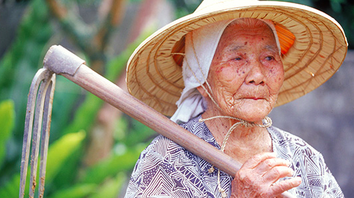
This small south Pacific island in Japan holds the honor for the longest disability-free life expectancy in the world. Known as the “land of immortals,” Okinawa has an incredible 900 people over 100 years old, the highest number of centenarians in the world despite having only 1.385 million people. How is that possible? Researchers noticed that the people there eat most of their food lightly steamed, eat more tofu and soya than anyone in the world, drink green tea, and eat a wide variety of fruits and vegetables, especially the dark green leafy kind. Unlike some of their vegetarian counterparts in other Blue Zones, the people of Okinawa do eat meat, though interestingly they usually only eat fish and it is often raw. They are always physically active even in advanced years, elders are greatly respected, and their “island attitude” results in a largely stress-free and communal life.
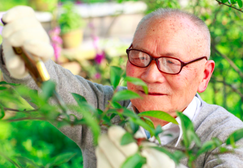
The island of Sardinia in southern Italy in the Mediterranean Sea holds the highest rate of male centenarians in the world. It’s estimated that the benefits of the Mediterranean Diet, also common in Greece, Cyprus, Turkey, parts of Spain, etc. help account for such long and healthy lives. That includes daily consumption of olive oil, called liquid gold for its health benefits, along with plenty of fruits, vegetables, legumes, and low consumption of meat and dairy. Don’t forget the glass of wine with every meal, a great source of flavonoids. Elderly people in this region also get plenty of exercise, sunshine, fresh air, and stay active in their homes, families, and communities.
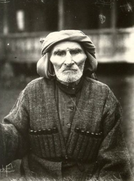
This unforgiving environment in the Caucasus Mountains, located between Europe and Asia, was once referred to as the “longevity capital of the world.” In fact, the longest-living man in the world, Shirali Muslimov, who lived to the ripe old age of 168, was from Azerbaijan in that region. The people there mostly eat freshly picked nuts and whole grains, and locally grown fruits and vegetables. They only rarely eat meat, and with the fat removed, but drink a special fermented beverage for vitality called matzoni, made from goat’s milk. They are constantly walking up and doing hilly paths and mountainous terrain, so every person is trim and fit no matter what age. Just like in Okinawa, elders are revered and respected in their society.
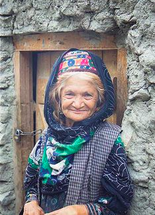
High up in the inhospitable mountains in Pakistan, the Hunza tribes have lived for many centuries, isolated from the rest of the world but enjoying very long, healthy lives. Due to the mountainous conditions the Hunza have to walk almost everywhere, and farming the soil is a full time job that keeps them physically fit. They subsist on a diet of fresh fruit most of the year and keep dried fruit to get them through the winters. In summer months, their diet also includes beans, corn, roots, tubers, squash, and sprouts, all extremely healthy. Most of the time their food is eaten raw because even cooking fires can be hard to come by. Eating meat or dairy is an extreme rarity, as the mountains don’t even allow for grazing of animals. Incredibly, they are virtually disease free during their lives, despite the harsh terrain and their hard lives.
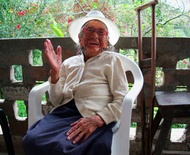
In high-altitude valley in the peaks of southern Ecuador, the Vicalbamba people commonly live to 110 years old or more. Of course they stay active and physically fit, walking and hiking and cultivating the land, but like many of these people with extraordinary long lives, they also enjoy a strong sense of community, a stress-free life full of laughter and the warmth of extended family, and a sense of purpose long into live, as elders are looked up to. The Vicalbamba also share an almost-vegan diet, eating some cooked whole grains and lots of vegetables, nuts, and fruits all harvested with their own hands from their lands, with very little animal products.
Other Blue Zones around the world:
On the Greek island of Ikaria, there are an alarming number of centenarians and chronic disease and dementia are almost non-existant. Costa Rica spends only 15% of what America does on healthcare, yet their residents have a far longer life expectancy than almost all developing nations - and even many wealthier societies. The Nicoya Peninsula in Costa Rica is one such Blue Zone, renowned for having elders live well into their 90s and 100s.
There are even Blue Zones evolving within the United States which proves that it's not just environment or hereditary factors that determine longevity. In Loma Linda, California, emerging data reveals that residents live at least ten years longer than the national average due to their lifestyle, health, and diets. Alaska contains another Blue Zone.
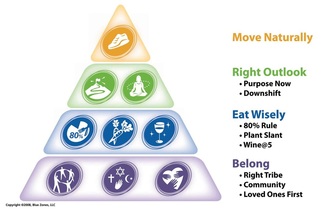
So if you want to live to 140 years old, too, should you just move to one of these places? I don’t think it quite works like that, but the good news is that you can replicate many conditions of their lifestyle to improve your health, even back in the United States.
Researchers who collected extensive data from these regions came up with several striking similarities between cultures in the Blue Zones:
- Diets that consist mostly of vegan, and/or vegetarian and organic food.
- They typically ate only 1,700-1,800 calories a day at most, even with physical activity filling their daily lives.
- That caloric intake was between 69-73% carbohydrates, 15-18% from fat and 10-13% from protein.
- Food was grown and harvested local, without any chemicals, pesticides, fertilizers, additives, GMOs, coloring or preservatives.
- A good portion of food was eaten raw.
- Vegetables, legumes, and fruits made up a large portion of their diet.
- They ate little or no sweets, no processed sugars, and no salt except possibly sea salts.
- They ate little or no animal products (0-10% of their diet, depending on the culture), and if they did it was lean and low fat.
- The fats they did eat were extremely healthy, coming from fish, eggs, olive oil, etc.
- They stayed lean and physically fit by walking, working, and staying active. No one had an exercise routine per se, but the activity in their lives dictated that there was zero obesity in their cultures.
- People in all of their cultures had low levels of stress in their daily lives.
- They used natural remedies and plants and herbs to heal ailments, not synthetic or chemical pharmaceuticals.
- They all laughed, interacted with family and friends, and enjoyed a sense of community with all of those around them.
- They believe in something greater than themselves; a purpose to their daily lives whether that be religion, spirituality, or just community.
- As they grew older they still had a sense of purpose, as elderly people are all greatly revered and respected in their cultures.
-Norm :-)
I originally wrote a version of this blog for Dr. Lance Casazza at Casazza Chiropractic in Sacramento, California.
 RSS Feed
RSS Feed